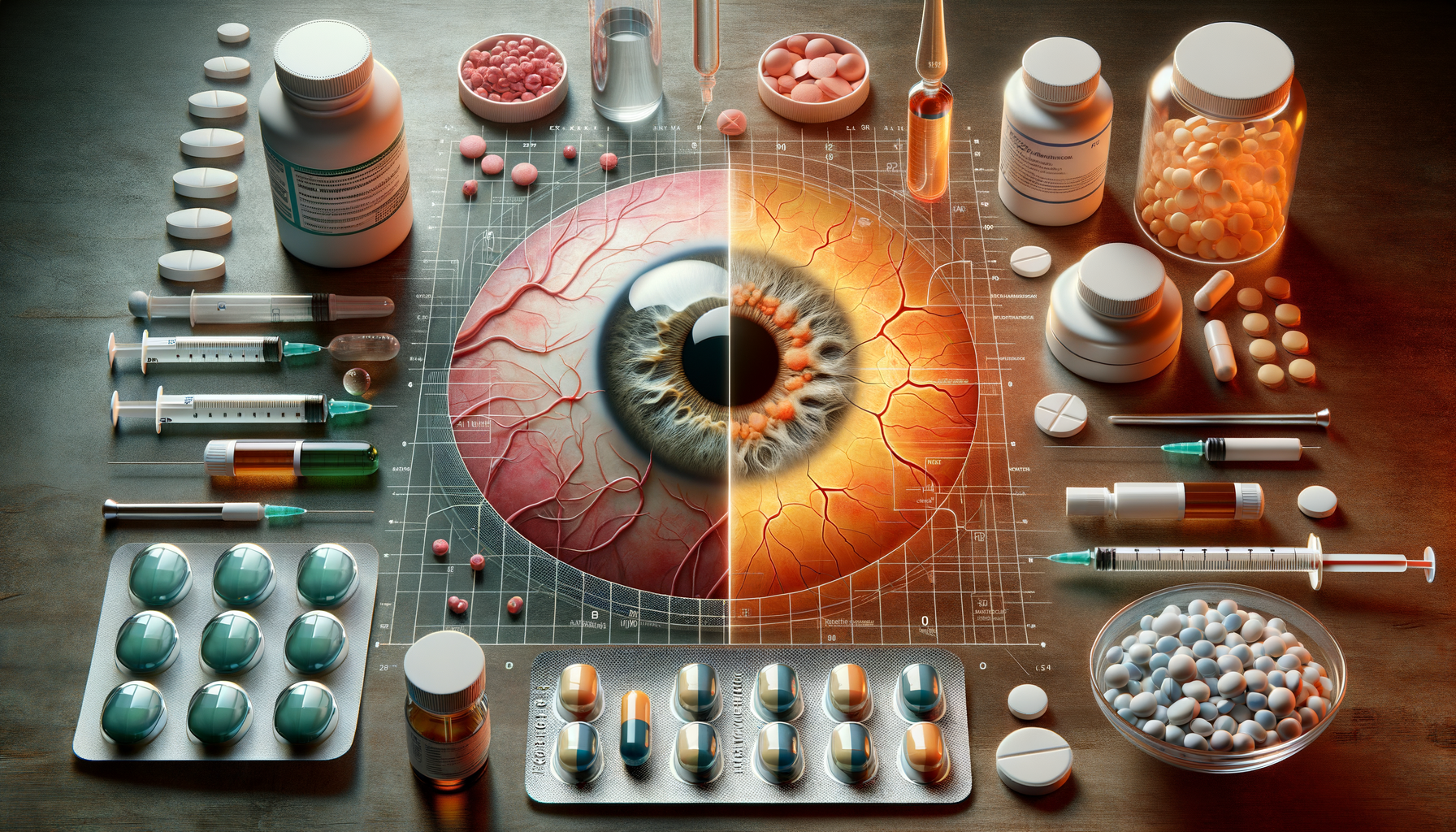Understanding Macular Degeneration: A Closer Look
Macular degeneration is a medical condition that primarily affects the central part of the retina known as the macula. This condition is particularly prevalent among older adults, leading to vision loss in the center of the visual field. The macula is responsible for sharp and detailed vision, which is crucial for activities like reading and recognizing faces. There are two primary types of macular degeneration: dry and wet. The dry form is more common and progresses slowly, while the wet form, though less common, can lead to more rapid vision loss.
The significance of understanding macular degeneration lies in its impact on the quality of life. As the population ages, the prevalence of macular degeneration is expected to increase, making it a significant public health concern. According to the World Health Organization, macular degeneration is one of the leading causes of blindness in the world. Therefore, gaining insight into its causes, symptoms, and progression is essential for early detection and management.
Research indicates that several factors contribute to the development of macular degeneration, including genetics, age, smoking, and diet. While age is the most significant risk factor, lifestyle choices such as smoking can significantly increase the risk. Additionally, a diet low in antioxidants and high in saturated fats may also contribute to the condition. Understanding these risk factors is crucial for prevention and management strategies.
Symptoms and Diagnosis: Recognizing the Signs
Recognizing the symptoms of macular degeneration early can be pivotal in managing the condition effectively. Initial symptoms may include blurred or reduced central vision in one or both eyes. Individuals may also notice dark, blurry areas or whiteout that appear in the center of their vision. Over time, these symptoms can progress to more significant vision impairment.
Diagnosis of macular degeneration typically involves a comprehensive eye examination. Eye care professionals may use a variety of tests to assess the health of the retina and the presence of drusen, which are yellow deposits under the retina often found in people with macular degeneration. An Amsler grid test, which helps detect vision problems resulting from damage to the macula, is another common diagnostic tool.
Furthermore, advanced imaging techniques such as Optical Coherence Tomography (OCT) provide detailed images of the retina, allowing for a more accurate diagnosis. Early detection through regular eye examinations is crucial, especially for those with a family history of the condition or other risk factors. By recognizing the signs early, individuals can seek appropriate interventions to slow the progression of the disease.
Exploring Treatment Options: From Lifestyle Changes to Medical Interventions
Once diagnosed with macular degeneration, exploring the available treatment options is vital in managing the condition. While there is no cure, various treatments can slow the progression and help maintain quality of life. For those with dry macular degeneration, lifestyle changes such as dietary modifications and quitting smoking are often recommended. A diet rich in leafy green vegetables, fish, and foods high in antioxidants can be beneficial.
For wet macular degeneration, medical interventions are more common. Anti-VEGF (vascular endothelial growth factor) injections are among the most effective treatments. These injections help reduce the growth of abnormal blood vessels in the retina, slowing vision loss. Laser therapy is another option, using focused light beams to destroy abnormal blood vessels.
Additionally, low vision aids, such as magnifying devices and special glasses, can help individuals make the most of their remaining vision. Vision rehabilitation programs are also available, teaching patients how to adapt to vision changes and use assistive devices effectively. By exploring these treatment options, individuals with macular degeneration can take proactive steps in managing their condition.
Innovations in Research: The Future of Macular Degeneration Treatment
The field of macular degeneration research is continually evolving, with scientists exploring innovative treatments and technologies. Gene therapy is one promising area, aiming to target and modify the genes responsible for the disease. This approach could potentially halt or even reverse the progression of macular degeneration.
Stem cell therapy is another area of interest. Researchers are investigating the use of stem cells to replace damaged retinal cells, offering hope for restoring vision. Early clinical trials have shown promising results, and continued research may lead to groundbreaking treatments in the future.
Moreover, advancements in imaging technology are enhancing our understanding of the disease. High-resolution imaging allows for earlier detection and more precise monitoring of the condition, enabling tailored treatment plans. As research progresses, these innovations hold the potential to transform the landscape of macular degeneration treatment, offering new hope to those affected by the condition.
Living with Macular Degeneration: Coping Strategies and Support
Living with macular degeneration can be challenging, but with the right strategies and support, individuals can maintain a fulfilling life. Coping with vision loss involves adapting to new ways of performing daily tasks. Simple adjustments, such as increasing lighting, using high-contrast items, and organizing the home for ease of navigation, can significantly enhance independence.
Support groups and counseling can also play a crucial role in helping individuals cope with the emotional impact of vision loss. Sharing experiences with others facing similar challenges can provide comfort and practical advice. Additionally, professional counseling can assist in addressing feelings of frustration and anxiety that may arise.
Access to resources and information is vital for those living with macular degeneration. Many organizations offer educational materials, workshops, and online resources to help individuals and their families understand the condition and explore available support services. By utilizing these resources, individuals can empower themselves to live well with macular degeneration.




Leave a Reply